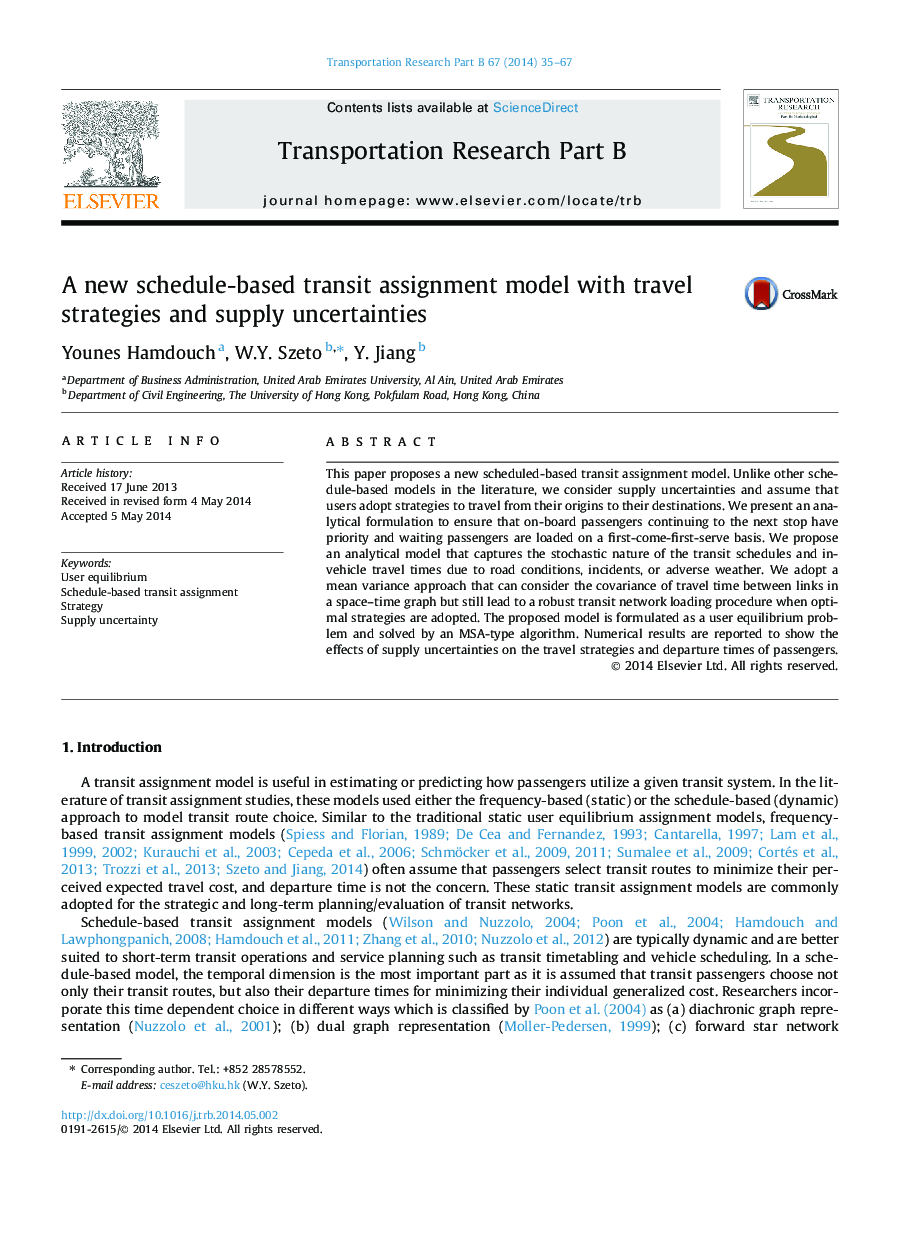| Article ID | Journal | Published Year | Pages | File Type |
|---|---|---|---|---|
| 1131850 | Transportation Research Part B: Methodological | 2014 | 33 Pages |
•Propose a schedule-based transit assignment model.•Consider both supply uncertainties and optimal strategies.•Rely on the usage of Bellman’s recursion principle for transit network loading.•Avoid path enumeration or column generation in the solution procedure.
This paper proposes a new scheduled-based transit assignment model. Unlike other schedule-based models in the literature, we consider supply uncertainties and assume that users adopt strategies to travel from their origins to their destinations. We present an analytical formulation to ensure that on-board passengers continuing to the next stop have priority and waiting passengers are loaded on a first-come-first-serve basis. We propose an analytical model that captures the stochastic nature of the transit schedules and in-vehicle travel times due to road conditions, incidents, or adverse weather. We adopt a mean variance approach that can consider the covariance of travel time between links in a space–time graph but still lead to a robust transit network loading procedure when optimal strategies are adopted. The proposed model is formulated as a user equilibrium problem and solved by an MSA-type algorithm. Numerical results are reported to show the effects of supply uncertainties on the travel strategies and departure times of passengers.
